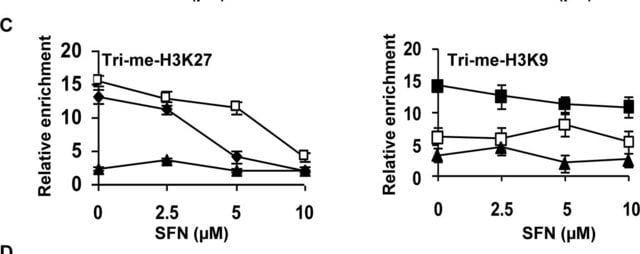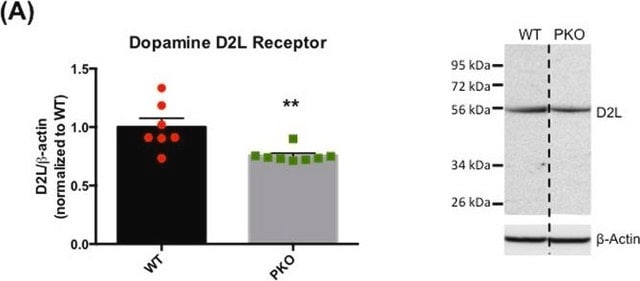07-436
Anti-monomethyl-Histone H3 (Lys4) Antibody
Upstate®, from rabbit
Synonym(s):
H3K4me1, Histone H3 (mono methyl K4), H3 histone family, member T, histone 3, H3, histone cluster 3, H3
About This Item
Recommended Products
biological source
rabbit
Quality Level
antibody form
purified immunoglobulin
antibody product type
primary antibodies
clone
polyclonal
species reactivity
human, vertebrates
manufacturer/tradename
Upstate®
technique(s)
ChIP: suitable (ChIP-seq)
dot blot: suitable
immunocytochemistry: suitable
immunofluorescence: suitable
inhibition assay: suitable (peptide)
western blot: suitable
isotype
IgG
NCBI accession no.
UniProt accession no.
shipped in
wet ice
target post-translational modification
monomethylation (Lys4)
Gene Information
human ... H3C1(8350)
General description
Specificity
Immunogen
Application
Reported by an independent laboratory.
Peptide Inhibition:
Specificity was confirmed by the ability of 1 μM of the immunizing peptide to completely abolish detection of histone H3 in immunoblot analysis of HeLa acid extracts. (see figure, lane 3). No competition was observed with peptides containing dimethyl-lysine 4, trimethyl-lysine 4, mono-methyllysine 4 or monomethyl-lysine 9 or 27.
Epigenetics & Nuclear Function
Histones
Quality
Western Blot Analysis:
0.5-2 μg/mL of this lot detected methylated histone H3 in acid extracted proteins from HeLa cells.
Target description
Physical form
Storage and Stability
Analysis Note
HeLa cell extract
Other Notes
Legal Information
Disclaimer
Not finding the right product?
Try our Product Selector Tool.
Storage Class Code
12 - Non Combustible Liquids
WGK
WGK 1
Flash Point(F)
Not applicable
Flash Point(C)
Not applicable
Certificates of Analysis (COA)
Search for Certificates of Analysis (COA) by entering the products Lot/Batch Number. Lot and Batch Numbers can be found on a product’s label following the words ‘Lot’ or ‘Batch’.
Already Own This Product?
Find documentation for the products that you have recently purchased in the Document Library.
Our team of scientists has experience in all areas of research including Life Science, Material Science, Chemical Synthesis, Chromatography, Analytical and many others.
Contact Technical Service








